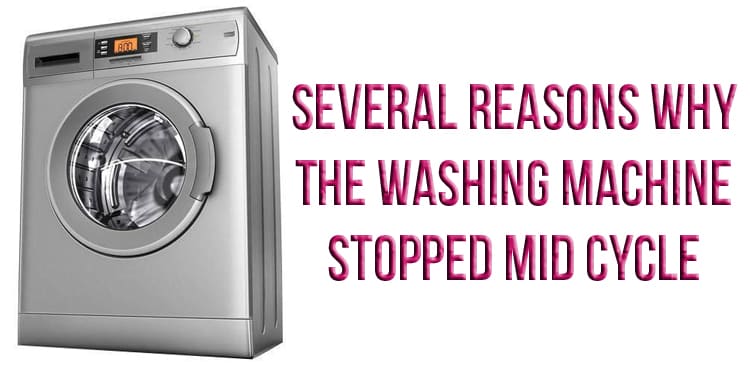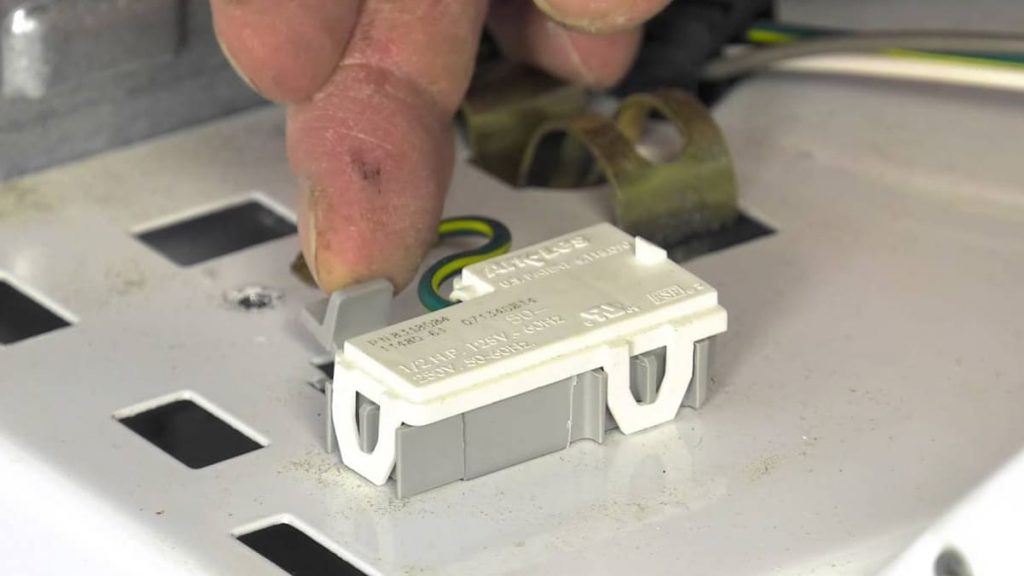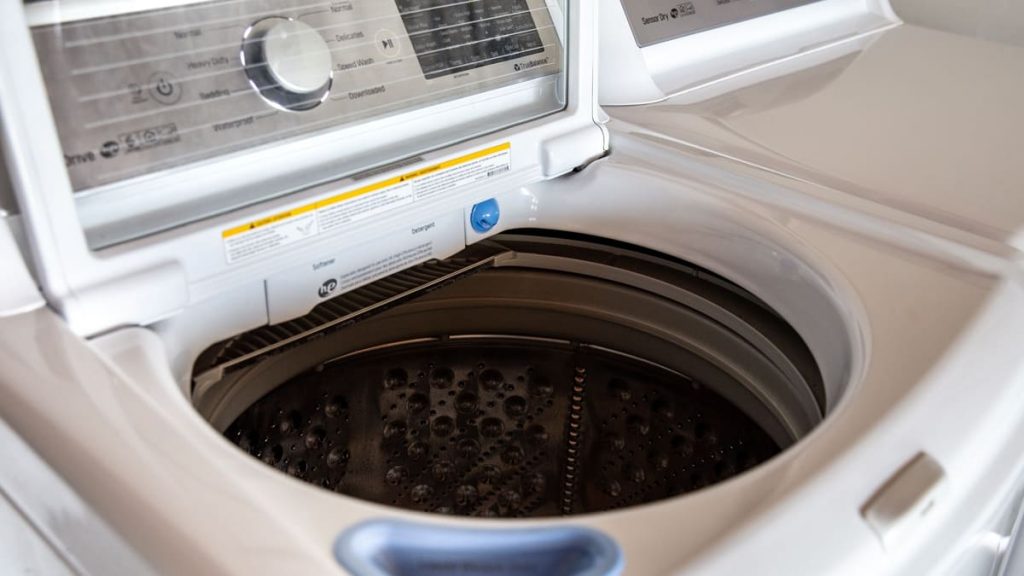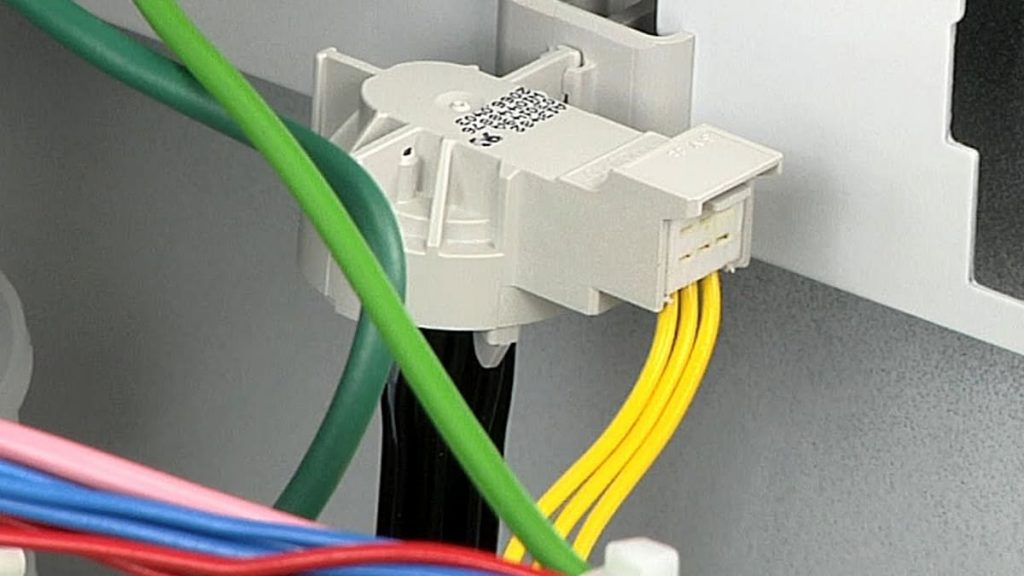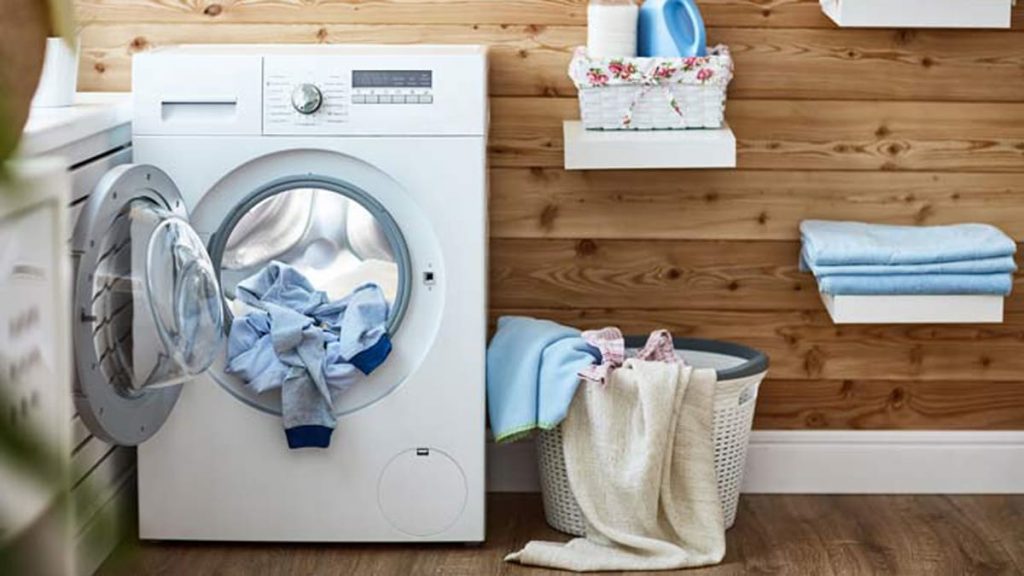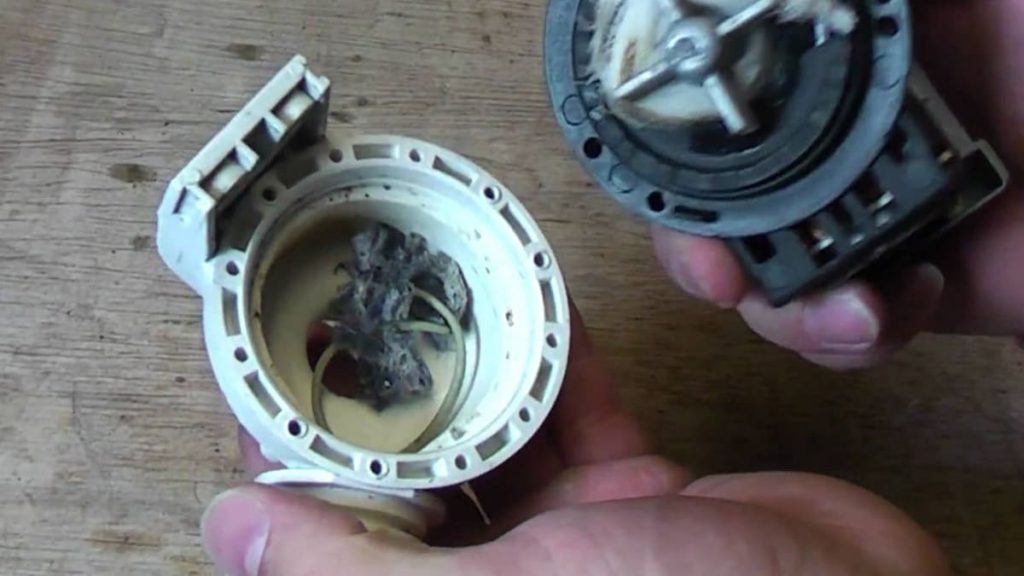When household appliances fail, the owner immediately begins to calculate the cost of repairs in his head. Well, if the breakdown is repairable. It also happens that the equipment becomes unrepairable. Before you start to panic, you can try to independently determine the cause of the breakdown or failure. You may even be able to repair the damage yourself. For example, if your washing machine suddenly starts to stop in the middle of a cycle, this may be due to various reasons. Consider the possible options for malfunctions and find out how to fix them.
Malfunction of the machine with the loading of the top type
Machines with different types of loading have different problem points. If the failure occurs in a top-loading machine, then the reasons for stopping the process before it is completely completed may be hidden in several elements.
Lid switch
If the machine suddenly stops instead of continuing the wash, the problem is usually a faulty lid switch. The switch assembly operates the moment the lid is opened. He does not allow the technique to work so that the owner does not get injured.
If the switch is faulty, the control board may consider that the lid has opened and stop the washing process. To confirm or deny this breakdown, you need to use a multimeter. You also need to visually inspect the part for defects. The defective switch must be replaced with a new one. This can be done on your own or with the help of specialists.
Before checking household appliances and carrying out repairs, always unplug appliances from the mains. The current can cause injury or death.
Drive switch
Another reason to stop washing is a broken drive switch. A signal that this particular part has broken will be a characteristic rattle during the operation of household appliances. The drive has an optical sensor, it tells the control unit to spin the drum. Another sign of failure will be the slow speed of rotation of the drum.
The machine at the time of stopping may display error codes F7, E1 or E5. This will also confirm the switch is broken. To find the part, use the instruction manual. Replace the element with a new one so that the machine works like new again.
If you have never repaired household appliances and do not understand anything about it, you should not repair it yourself. There is a risk of making a serious breakdown out of a small malfunction. This will cost many times more than calling a qualified master.
Clogged or broken drain pump
The drain pump performs an important function. Thanks to him, the water from the tank is drained between washing cycles. Different elements of the pump can fail: seal, bearing, blades. A pump failure will be signaled by a buzzing sound when there is water in the tank.
Often the cause of the failure is the usual blockage of foreign objects. Check the pump before ordering a new part or calling a technician. If there is a blockage, then it just needs to be removed. If everything is in order with this, then the pump is still broken. Sometimes you can replace some part of the pump, but more often the entire assembly is replaced.
Wrong load
Another reason is improper load distribution. The error code “UL” will then appear on the display. This often happens when bulky items are loaded into the drum: jackets, blankets, bedspreads, etc.
In this case, you need to open the lid, and evenly distribute the things in the drum. Then start washing again. If this does not help, the suspensions may have worn out and you will need to replace them all with new ones. After that, the problem should go away.
Front-loading washer malfunction
Such machines can also suddenly stop working. Consider the common causes of a malfunction and how to return the machine to working capacity.
Water pressure sensor failure
The water pressure sensor can break for various reasons. It could be a blockage in the pressure hose or faulty wiring. The machine will start filling with water when you start the wash, but then it will stop. The display should show an error code.
Before disconnecting the machine from the central water supply network, turn off the taps. After that, you can disconnect the pressure and drain hoses without worrying that a flood will happen at home.
First disconnect the pressure hose and check for blockages. If the cleaning did not help, then you need to check the health of the part with a multimeter. Run a wash to check. If the problem persists, then there is a failure or malfunction in other elements.
Incorrectly distributed load in the drum
Just like in top-loading machines, front-facing ones can also stop due to an unbalanced load. This happens when things move to one side or heavy items are on one side of the drum.
Open the door, distribute things in the machine evenly. If there are too many things, divide the bookmark into two. If this was the problem, then the machine will work fine. Otherwise, you need to check the shock absorbers. If necessary, replace both at once so that the problem does not reappear soon.
Broken or clogged drain pump
If the drain does not occur, the process is not completed, and the machine just stops, then the problem may be in the drain hose.
As long as there is water in the tank, the door will be locked. Turn off the machine from the mains, try to drain the water manually. Get to the drain pump and check if it is clogged. If there are defects, damage, and no blockage was found, then you will have to change the part to a new one.
Faulty wiring
If the machine has stopped due to problems with the wires, it is unlikely that it will be possible to independently detect a break or a disconnected contact. In this case, calling the wizard will be faster and easier. With the help of special equipment, a specialist will check household appliances and replace the wires with new ones if necessary.
Not always a breakdown or failure requires a call to a specialist. Thanks to our tips and tricks, you can try to find out for yourself why the washing machine stops in the middle of the cycle. You may be able to fix the problem yourself, without involving the wizard.
